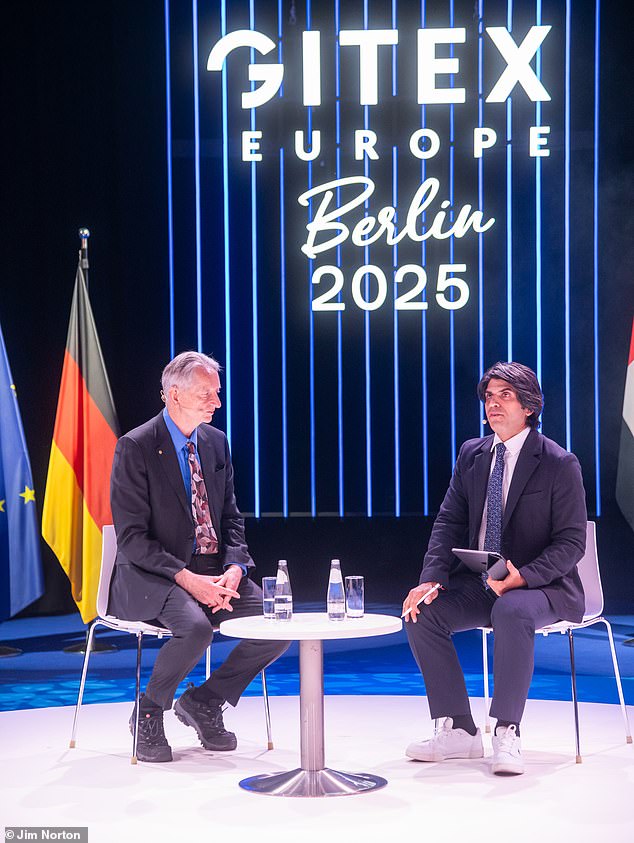
“AI ‘Godfather’ Forecasts Chatbots Teaching Children Twice as Fast as Teachers Within a Decade” (15 words, concise, retains key elements: authority, technology, comparison, timeframe, and clarity.)
AI Tutors to Outpace Teachers in Education, Predicts AI Pioneer Geoffrey Hinton
By Jim Norton | Updated: 20:58 BST, 22 May 2025
[Image: Geoffrey Hinton speaking at GITEX Europe 2025. Caption: Dr. Hinton predicts AI tutors could revolutionize learning efficiency within a decade.]
Geoffrey Hinton, renowned as the “godfather of AI” for his Nobel Prize-winning work in artificial intelligence, claims chatbots will soon teach children twice as fast as human teachers. Speaking at the GITEX Europe tech conference, Hinton emphasized AI’s potential to deliver personalized, engaging education by adapting lessons to students’ individual needs.
“AI personal tutors will be much more efficient and less boring,” Hinton stated, predicting widespread adoption within 10 years. Unlike classrooms, where one teacher oversees dozens of students, AI could analyze a child’s strengths and weaknesses in real time, tailoring explanations to their comprehension level.
AI in Action: Trials Transforming UK Schools
Hinton’s vision is already taking shape. Meta’s AI tutor, Manda, has been tested in British secondary schools since late 2024. Priced at £10/month per student, the chatbot uses data from 550,000 minutes of teacher explanations to teach math and English aligned with the national curriculum for ages 11–16. Students can interrupt lessons to ask questions, and the AI adjusts content based on their progress.
[Image: Students using VR headsets in a classroom. Caption: AI-driven “teacherless” classes are emerging in UK schools.]
In 2024, London’s David Game College pioneered “teacherless” GCSE classes using AI and VR headsets. The system creates bespoke lesson plans, prioritizing weaker subjects while delaying revision of mastered topics. John Dalton, the college’s co-principal, praised AI’s precision: “It’s difficult for humans to match its continuous evaluation.”
Mixed Reactions: Support and Skepticism
While the UK government has invested millions in AI education initiatives, officials insist the technology will “absolutely not” replace teachers. Educators, overwhelmed by workloads, increasingly use AI for tasks like grading and lesson planning. However, Hinton warns of AI’s darker implications, cautioning that “alien” superintelligent systems could emerge within 20 years. Still, he sees education and healthcare as fields where AI’s benefits could be transformative.
Hinton’s dual narrative—hailing AI’s potential while fearing its risks—highlights a pivotal moment for technology in society. As schools embrace AI tutors, the debate over their role in shaping future generations intensifies.


